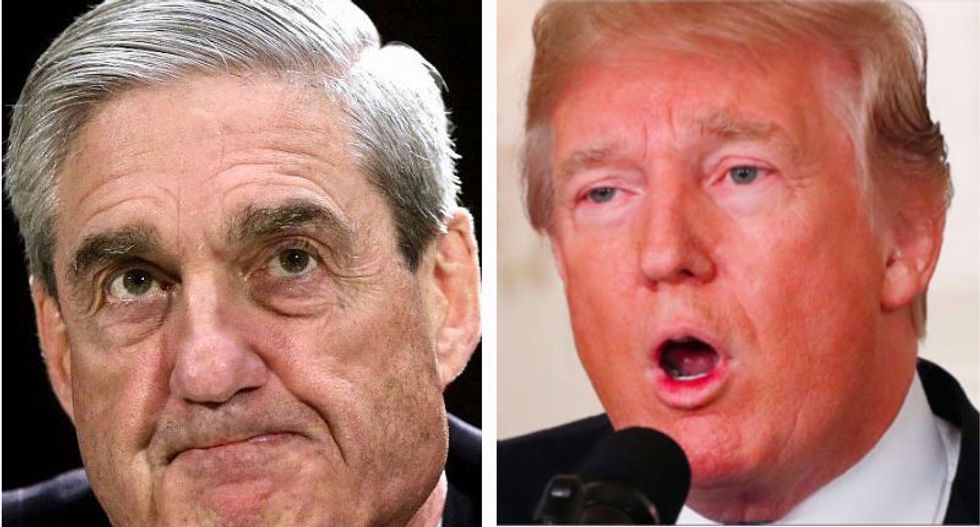
President Donald Trump's request to Attorney General Jeff Sessions to shut down the Russia probe may seem like a clear-cut case of obstruction of justice -- but to special counsel Robert Mueller, it's just part of a bigger picture.
Sources said Wednesday that the president wants to speak with Mueller, against his lawyers' advice.
During a Thursday discussion, CNN legal analysts began by explaining that if the Trump team thinks it can get away with sending written statements in lieu of a live interview, it has another think coming. Former federal prosecutor Renato Mariotti called such answers "essentially useless" because they've been pre-digested by attorneys.
"One thing they really need to put a bow on is there intent here," said Laura Coates. "We can all surmise and guess about whether or not the president's contextual clues, about the perceived witch hunt."
She explained that Mueller needs to know if Trump had "the corrupt intent to impede or influence or undermine this investigation." That option is instead of the "much harder standard of circumstantial evidence, meaning that contextual evidence of everything." Mueller would likely be more inclined to want to "hear it from the horse's mouth."
"You have the opportunity to question the president; you need to be able to assess their credibility," she said. "Look them in the eyes, have a gut reaction, and compare it to what they have already written."
She noted that Rudy Giuliani seems so concerned about a so-called "perjury trap." However, if they put together a written statement, it puts Trump in a position to have to verify all of those claims his lawyers outlined.
Mariotti outlined the circumstantial evidence. However, he now believes that he has seen all of the evidence needed to justify an obstruction charge.
"All of the evidence that we have seen of the president's intent, not only the firing of [former FBI director] James Comey, pressuring the attorney general to recuse himself, telling [White House counsel] Don McGann to fire Robert Mueller at one point, and just all sorts of statements by the president, angry about the existence of this investigation, and very much desiring to help Michael Flynn and others."
He explained that there is a variety of evidence that shows the president's "intent" was to undermine the investigation before his tweets were even part of the equation.
Trump has made the argument in the past that it is under his purview to fire whomever he wishes, but Mariotti explained just as he can’t fire someone for their race or religion, it's to fire someone to impede an investigation. In the case of Comey, Trump had deputy attorney general Rod Rosenstein justify the firing, but then later said it wasn't the actual reason he did it.
Coates said that when people are arguing about the "form and not the substance of what you're doing, you're playing a losing plan's game."
Ultimately, Coates explained that no prosecutor would let the investigation conclude merely because he or she found proof of obstruction of justice. She surmised that Mueller is merely continuing the investigation in its entirety.
Asha Rangappa explained in a later segment that a single tweet couldn't be used to charge obstruction of justice. Instead, it is part of a more extensive collection of evidence for the investigation.
Watch the full conversation below:




